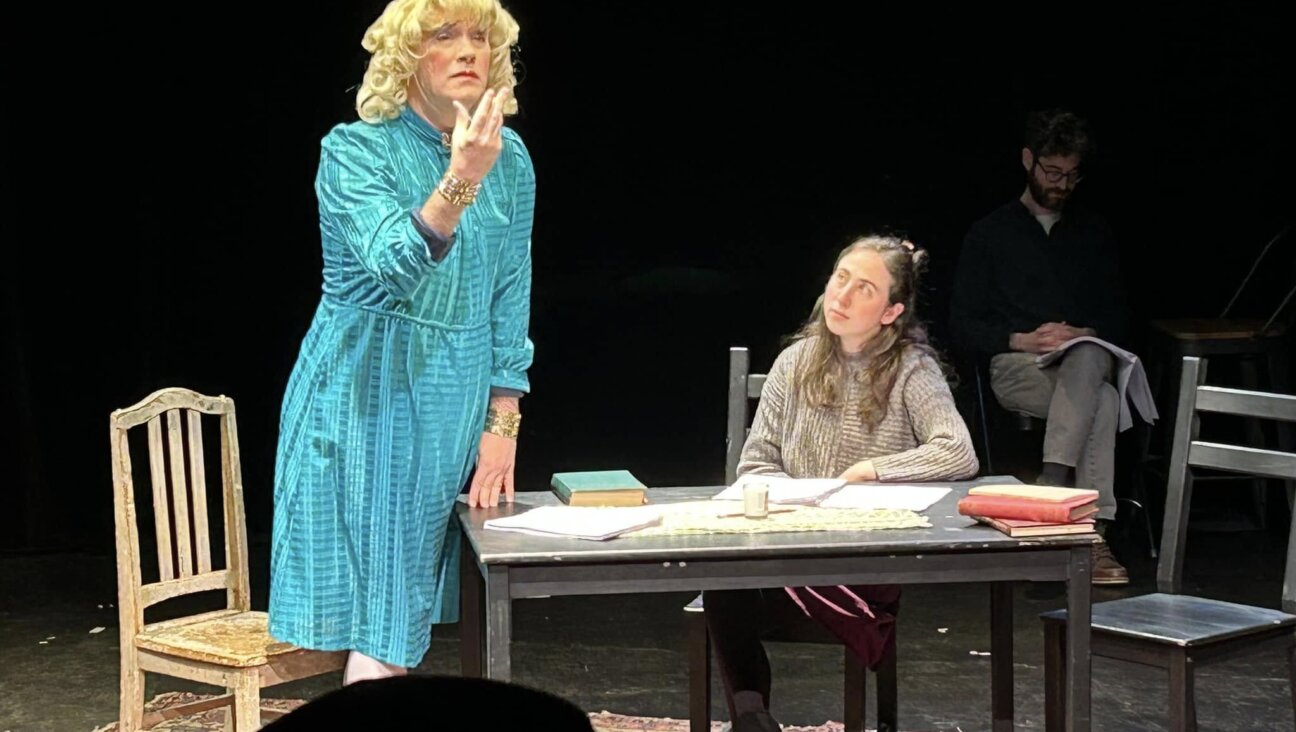Orthodox Yiddish Music Video Reaches Out To Mentally Ill

Image by Jewish Heritage Center
This article originally appeared in the Yiddish Forverts.
On May 13th, a tragedy occurred in Boro Park that shook the local Jewish community and sent shockwaves around the Orthodox Jewish world: A 23-year-old Hasidic man set himself on fire in his car.
After the tragedy the directors of 1225, a drop-in center for Hasidic youth launched a campaign in the young man’s memory to raise funds to expand their mental health services in the Hasidic community.
As part of the campaign on Charidy, a popular Haredi answer to GoFundMe, 1225 organized the production of a Yiddish-language music video highlighting the issue of mental illness. The song “Uhkay,” featuring Tuli Brull and Moishy Klein, is the first major Hasidic music video to broach the topic of mental illness.
Until recently such tragedies were typically kept quiet due to the stigma associated with mental illness. While such stigma still exists in the Hasidic world, especially when it comes to marriage prospects, the community has recently undergone a sea change in terms of awareness. There are now popular Yiddish magazines and telephone hotlines dedicated to the topic and a variety of culturally appropriate therapy programs for mental illness and addiction issues.
1225, which is run by the Jewish Heritage Center of Queens and Long Island, provides Hasidic youth with GED classes and access to psychological counseling and social workers. It also serves as a safe place where young people can gather and talk to one another if they feel uncomfortable at home.
The young man who took his life was a frequent guest at 1225.
The song’s lyrics translate to:
What’s happening here?
So many years already
How can we bear so much pain among us?
If you think that you can manage on your own
I’m begging you, I need you
Try to understand me
Take me into your arms
Tell that you’re here and will always be there for me
Hug me tightly, don’t let me go
And everything will be ok.
Tell me that you know it’s no problem
Nobody’s surprised that the struggle is real
I’ve fallen too hard
I know how you feel
It’s our responsibility and we all know it
It’s time we did something about this
A message from our Publisher & CEO Rachel Fishman Feddersen

I hope you appreciated this article. Before you go, I’d like to ask you to please support the Forward’s award-winning, nonprofit journalism during this critical time.
At a time when other newsrooms are closing or cutting back, the Forward has removed its paywall and invested additional resources to report on the ground from Israel and around the U.S. on the impact of the war, rising antisemitism and polarized discourse.
Readers like you make it all possible. Support our work by becoming a Forward Member and connect with our journalism and your community.
— Rachel Fishman Feddersen, Publisher and CEO
























